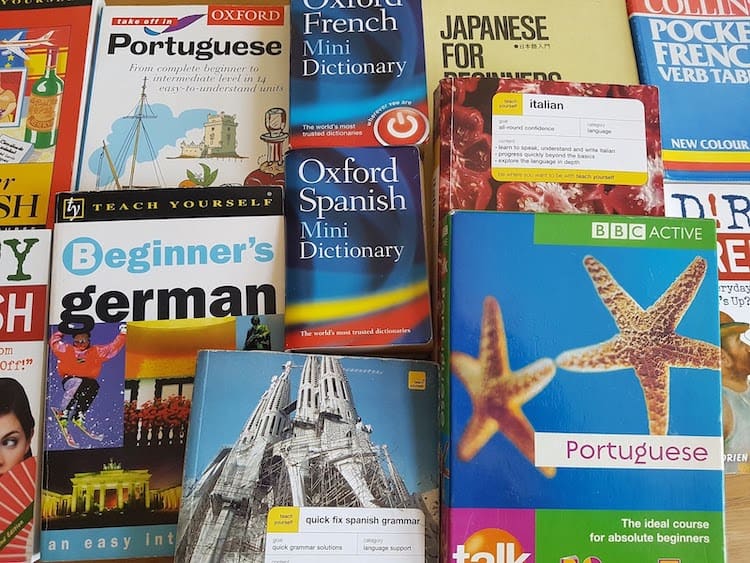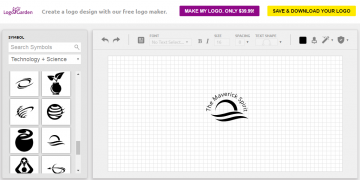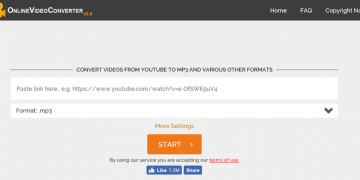Travelling to a place where the language is foreign can be a daunting experience.
There’s nothing more frustrating than not being able to express yourself. – you can’t ask for directions, can’t order a coffee and can’t fully appreciate the culture.
Of course, you can’t expect the locals to speak your language either.
If you truly want to immerse yourself and appreciate the culture of your destination, it’s time to learn the basics of the language…
…but don’t worry, it’s not as hard as it seems.
PLanning to learn a language before you travel is just like picking up anything new.
You have to be motivated and interested in the topic – and there’s no better motivation than the excitement of an upcoming trip.
If you want to make the most of your journey, it’s important to know how to learn a language effectively before you travel.
Here are some suggestions tips on how to learn the essentials quickly:
1. Unlock Your Mind with Comprehensible Input
You may think of language learning as boring linguistics and grammar lessons. Dry vocabulary repetition. Anxiety-filled speaking exercises. But none of these methods work. The most effective way to acquire language is through “Comprehensible Input”. It’s a language learning theory that focuses on learning through understanding. You’ll have an easier time committing key phrases and words to memory if you grasp their meaning.
You’re probably familiar with this natural language learning phenomenon in your native language. You hear a sentence but one of the words is unfamiliar to you. However, you still know its meaning from context. That is the core of comprehensible input. As long as you understand the overall message, you will progress in your language learning.
You also want your language studies to keep you on your toes. Challenge yourself to keep learning new words and phrases. Raise the difficulty of your exercises if you become too comfortable with your current knowledge. This way you can learn a language effectively, and without too much difficulty. Perfect when you’re prepping for a trip in a short period of time.
2. Practice High-Frequency Phrases and Words

You won’t need useless vocabulary on your travels. Focusing on words and phrases you’re likely to use will not only make your studies more effective, but it will also be more fun to learn.
Most people only use a small percentage of the words in their language. It’s the 80/20 principle.
Basically, 80% of the language you use daily comes from around 20% of your native language. So, practising high-frequency words can quickly improve your ability to communicate as you’ll be targeting words you’ll use regularly.
By understanding everyday writing and speech used by locals, you can easily navigate in a foreign environment.
Below is a list of the most commonly used words in the English language to get you going. This is a generic list and would clearly not be the most commonly used words in every situation, but it’s a good place to start.
Also, think about where you’re most likely to be using language. Train stations? Cafes? Hotels? This will allow you to quickly develop a common list of words which are relevant to these environments rather than lots of other words (animals, colours etc) which may not be needed until later.
Nouns
- time
- person
- year
- way
- day
- thing
- man
- world
- life
- hand
- part
- child
- eye
- woman
- place
- work
- week
- case
- point
- government
- company
- number
- group
- problem
- fact
Verbs
- be
- have
- do
- say
- get
- make
- go
- know
- take
- see
- come
- think
- look
- want
- give
- use
- find
- tell
- ask
- work
- seem
- feel
- try
- leave
- call
Adjectives
- good
- new
- first
- last
- long
- great
- little
- own
- other
- old
- right
- big
- high
- different
- small
- large
- next
- early
- young
- important
- few
- public
- bad
- same
- able
Prepositions
- to
- of
- in
- for
- on
- with
- at
- by
- from
- up
- about
- into
- over
- after
Others
- the
- and
- a
- that
- I
- it
- not
- he
- as
- you
- this
- but
- his
- they
- her
- she
- or
- an
- will
- my
- one
- all
- would
- there
- their
Studies suggest that by recognising marker words in these expressions, learners can identify speech and grammar patterns, and by familiarising yourself with the core vocabulary of a language, you can understand more advanced and complicated language structures more easily.
Plus, as I described above, when you’re travelling, you want language you can use.
So, being able to remember phrases like, “where is the bathroom?” and “how are you?” will get you much further than being talking about colours, animals, and other random words many language learning programs try to teach you.
Experience tells us that you need less than 500 words (probably even less than 300) in a language for a decent day to day conversation and small talk. Of course, if you are planning to read Ulysses in French, you will need more words than that, but given most people fail to finish it even in English, it’s unlikely to be one of the first things you’ll do with a new language!
The majority of conversations end up revolving around food, drinks, sex, sport, politics and travel, so you can easily pick up the key words and phrases that will allow you to engage with people around you.
3. Use Spaced Repetition to Your Advantage

Learning is hard because your brain is trying to forget. That’s not very useful when you’re trying to learn a language.
Instead of keeping a book underneath your pillow, try using spaced repetition as a learning technique to effectively commit your material to memory.
Giving yourself time between studying sessions is important for your brain. While resting and recovering you may forget some of the material you wanted to learn. But by reviewing material strategically, the information will slowly get stored in your long term memory. Revisiting the material periodically and at increasing distances from your last lesson will increase your knowledge.
Without spaced repetition, you won’t be able to commit the language to your long term memory and risk forgetting words and phrases when you need them the most. But don’t get frustrated if you start to forget. That’s part of the learning process. Just keep revisiting those lessons to reinforce the memories.
Just don’t leave too much time between your lessons otherwise, you may completely forget the material.
4. Use Recommended Language Learning Apps and Platforms
There are a multitude of language learning apps and platforms out there.
Some are free, some are paid, but only a few are effective. If you want your language learning to be practical, you need a platform that uses comprehensible input, spaced repetition, and high-frequency phrases to teach you. With these apps, you’ll be at a comfortable level in no time.
WikiTravel Phrase Books
WikiTravel will be your best friend on your trip. This website features the most used expressions of 200 languages, so you can easily bulk up on high-frequency phrases before you depart.
LingQ
Learning about topics that interest you will keep your motivation up. LingQ combines spaced repetition with engaging material. You can choose from subjects like Travel, Food, Culture, and Books. You can also create your lesson plans with YouTube videos, Netflix shows, or news articles. Whatever keeps your interest up.
OptiLingo
OptiLingo incorporates comprehensible input and spaced repetition systems into its foundation to help guide you to fluency quickly. The app’s own Guided Immersion program uses high-frequency phrases, so you can learn how the locals speak.
FluentU
If you’re a visual learner, FluentU can help you learn a language through videos and films. There’s a variety of content available through this platform that ranges in difficulty.
Memrise
Memrise prides itself on teaching real-life language. You can familiarise yourself with accents, voices, and culture before your trip. You can also use their “mems” to create mnemonic devices that help you remember the words, making it more enjoyable as you go.







































